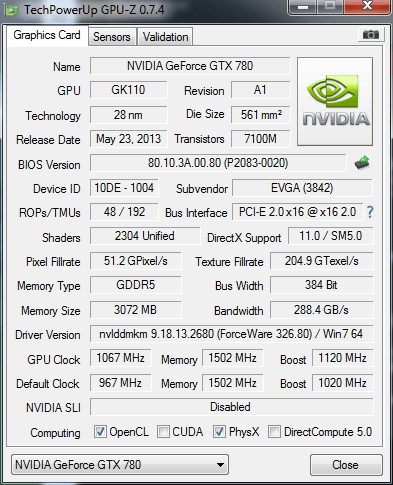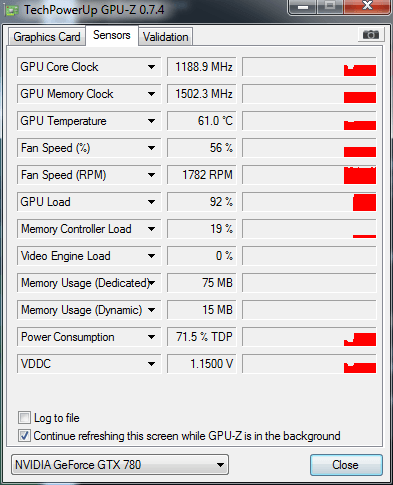Got my GTX 780 Ti today.

Tried this afternoon to run some folding WU, but it wasn't included in the GPUs.txt file. Thanks to the ff team for quickly expanding the file to include the card. It is now working on its first units.
You will be pleasantly surprised
Based on approx 20% of the first WU (P7811), the card would produce 210k ppd.
More to come....
Andy

Tried this afternoon to run some folding WU, but it wasn't included in the GPUs.txt file. Thanks to the ff team for quickly expanding the file to include the card. It is now working on its first units.
You will be pleasantly surprised
Based on approx 20% of the first WU (P7811), the card would produce 210k ppd.
More to come....
Andy
![[H]ard|Forum](/styles/hardforum/xenforo/logo_dark.png)




